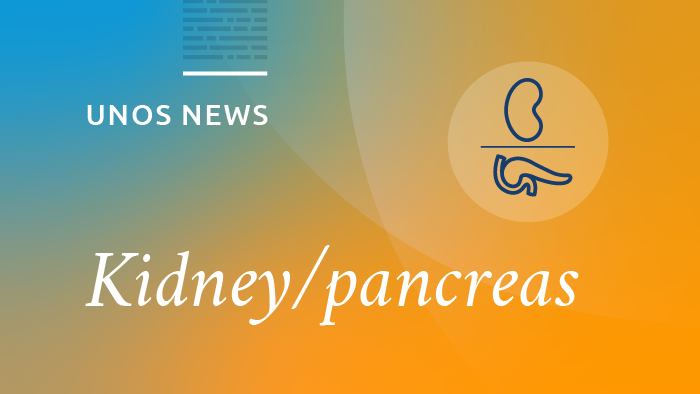Implementation date:
Dec. 1, 2020
At-a-glance
Phase I implementation of the Organ Procurement and Transplantation Network policies that address how medically urgent kidney candidates are prioritized in the new kidney allocation system will begin Dec. 1. Phase II implementation will occur on Dec. 15, when donation service area (DSA) and region are replaced with a 250 nautical mile circle for kidney and pancreas allocation. Statistical simulation modeling projects that the new kidney and pancreas policies will improve transplant access for key groups of transplant candidates, including children, women, ethnic minorities and candidates who are particularly hard to match for biological reasons.
Phase I of this implementation provides kidney transplant staff two weeks to update candidate data ahead of final implementation. Kidney transplant professionals will need to understand which candidates qualify for this status in addition to how the medical urgency status is prioritized.
Medical urgency status policy
The policy to eliminate DSA and region from kidney allocation will impact existing medical urgency policies by eliminating Policy 8.2.a: Exceptions Due to Medical Urgency. This policy notice provides details on the new medical urgency classifications within all kidney allocation sequences. This policy change was approved in order to provide a consistent definition of medical urgency and also ensure medically urgent candidates receive allocation priority in the new system
Phase I implementation
Phase I is a transition period that begins Dec. 1, 14 days prior to the policy going live on Dec. 15. Transplant program staff should pre-fill data early for any candidates who will meet the new definition of medically urgent. This will allow candidates to receive priority at the new status as soon as the new policy is implemented. During Phase I, candidates won’t accrue waiting time at the new medically urgent status or receive priority based on this criteria.
Beginning Dec. 1, kidney programs will need to:
- Review their current medical urgency status exceptions
- Enter additional data in Waitlist℠ for candidates who meet the new medical urgency definition
- Submit supporting documentation
Phase I professional education is now available in the UNOS Connect course catalog:
- KID113: Medically Urgent Status for Adult and Pediatric Candidates: Phase One.
Phase II implementation
Phase II begins Dec. 15, the day the policy is implemented.
- At that time, all candidates with pending medical urgency data pre-filled in Waitlist during Phase I will be automatically converted to the new medically urgent status (Status 2). If current candidate listings that have existing medically urgent and critical statuses (Status 5 and Status 6) are not updated with new medical urgency qualifying data by Dec. 15, they will convert to active status (Status 1). After implementation, Status 5 and 6 will no longer exist as status options for kidney candidates.
Phase II professional education resources will be released on UNOS Connect Nov. 17:
- KID114 Medically Urgent Status for Adult and Pediatric Candidates: Phase Two
Supporting documentation
The transplant hospital must document the medical urgency qualification in the candidate’s medical record and submit supporting documentation to the OPTN within seven (7) business days of indicating medical urgency status.
Information about post-implementation monitoring
The use of the medically urgent status will be retrospectively reviewed periodically by the OPTN Kidney Transplantation Committee. Cases may be referred to Membership and Professional Standards Committee for review according to Appendix L of the OPTN Bylaws if the committee feels that the classification was misused.
Professional education resources
Resources and trainings for organ procurement organizations and transplant professionals are in development. The following online modules are scheduled for release on UNOS Connect:
- Nov. 3: KID113 Medically Urgent Status for Adult and Pediatric Candidates: Phase One
- Nov. 17: KID112 Removing DSA and Region from Kidney and Pancreas Allocation
- Nov. 17: KID114 Medically Urgent Status for Adult and Pediatric Candidates: Phase Two
- Nov. 17: KID111 Modifications to Released Kidney and Pancreas Allocation
- Nov. 17: QLT102D Notification Limits for Distance-based Allocation
- Nov. 17: QLT103D Acceptance Criteria for Distance-based Allocation
Find all policy notices, including the one addressing medical urgency, in the policy toolkits in the Professional Education section of the OPTN website:

